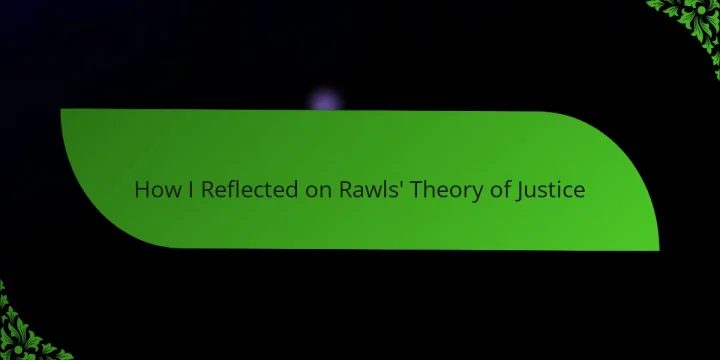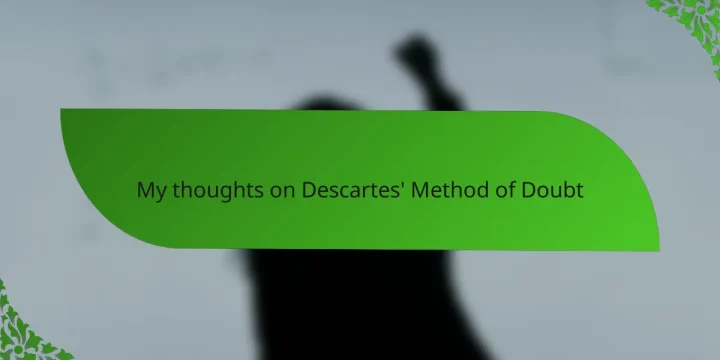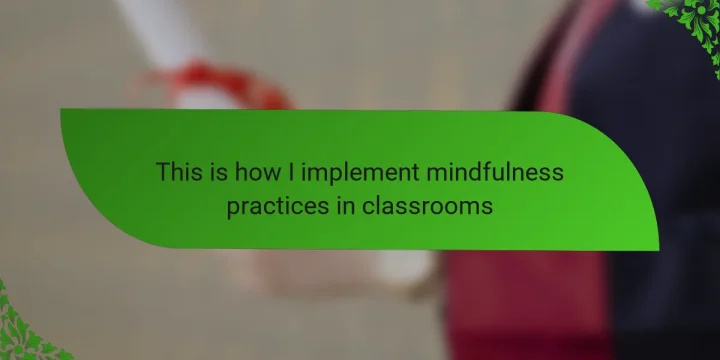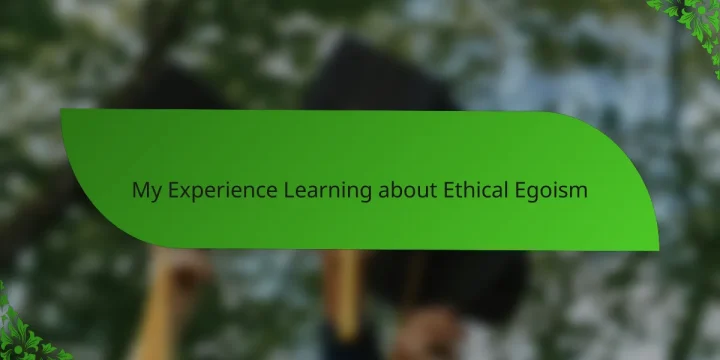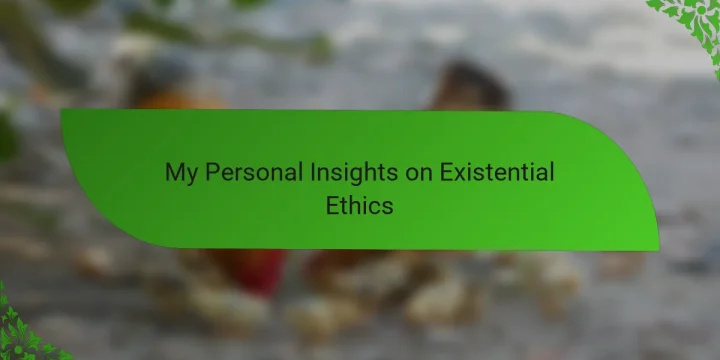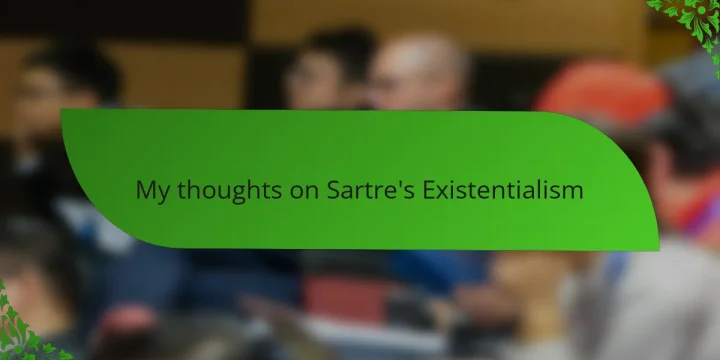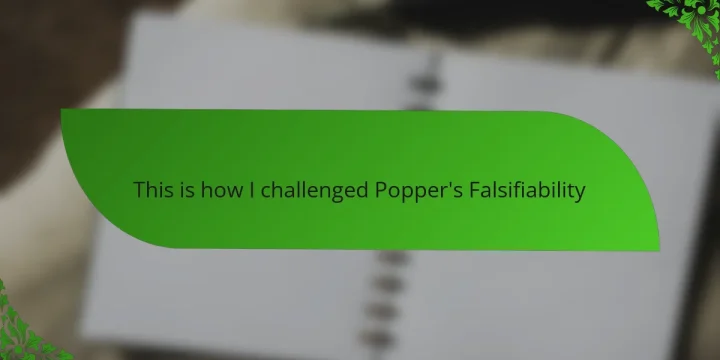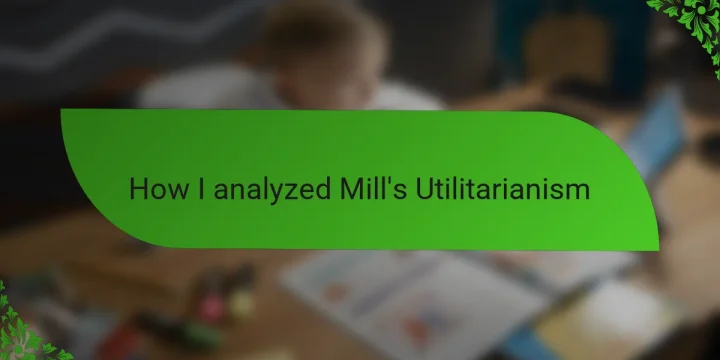
Key takeaways Utilitarianism focuses on maximizing happiness and reducing suffering, emphasizing outcomes over intentions. Mill distinguishes between higher and lower pleasures, advocating for the prioritization of intellectual and moral satisfaction over mere physical pleasures. Applying utilitarianism in education encourages critical thinking about the balance between individual rights and collective happiness, fostering engaging discussions. Reflecting on Mill's principles prompts a deeper understanding of moral choices, emphasizing the significance of meaningful fulfillment over immediate gratification. Introduction to Utilitarianism Philosophy Utilitarianism is a philosophy that seeks to maximize happiness and reduce suffering. When I first encountered it, I was struck by its straightforward appeal—making choices based on the greatest good for the greatest number felt both practical and humane. But have you ever wondered how we measure happiness or weigh one person's joy…
